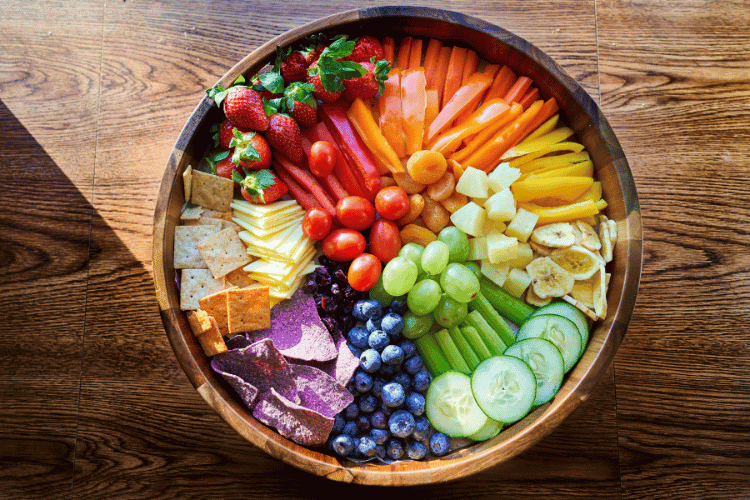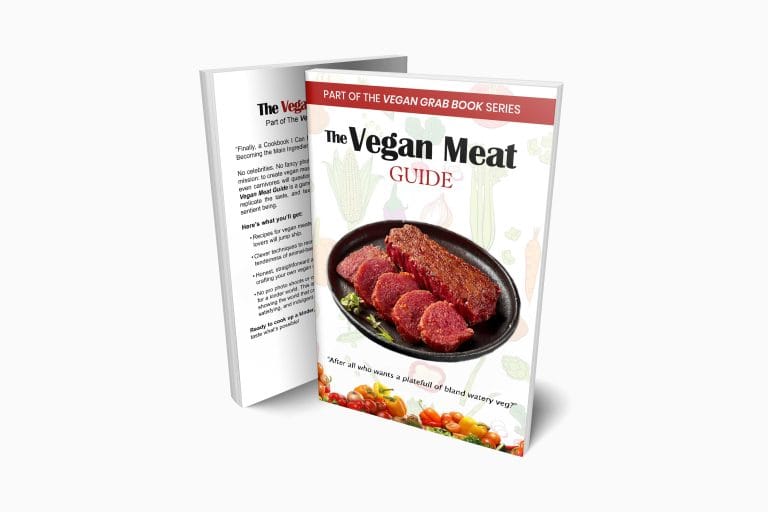Is a Vegan Diet Healthy?
Here’s an interesting fact: the number of vegans in the UK increased by around 350% over the last decade! That’s not a surprise when you consider that this diet certainly has its ethical appeal.
Still, you might be wondering: is a vegan diet healthy?
Well, a vegan diet can be beneficial, provided that it’s well-balanced and carefully planned. Otherwise, it could lead to deficiencies in vitamin B12, calcium, and other essential nutrients.
If you’re curious about whether veganism is truly a good lifestyle choice, read on for more details. In this article, you’ll find out how it beats meat-eating and how to be aware of any issues.
From its impact on weight loss to its suitability for different life stages, we’ll delve into every aspect to help you make an informed decision.
What Makes a Vegan Diet Healthy?
While plant-based foods are rich in essential nutrients, antioxidants, and fibre, they still lack some nutrients.
Take vitamin B12, for instance. Plants don’t make it naturally, and our bodies need it for a whole host of vital processes, from building red blood cells to protecting nerve tissue from damage.
So, a vegan diet doesn’t guarantee good health. It’s only beneficial if you know the importance of fortified foods (non-dairy products) and supplements.
Additionally, the healthiness of a vegan diet is influenced by individual choices.
Just as you might avoid refined grains and sugars on a regular omnivorous diet, you’ll want to do the same as a vegan.
Who Are Vegan Diets Good for?
Many people go vegan because of ethical reasons. Others do it looking for a change in their dietary habits, but who exactly can make that jump into veganism?
Well, a well-planned vegan diet can be suitable for everyone, from children to Olympic athletes. However, it’s not a one-size-fits-all. It’s crucial to be mindful of each individual’s needs.

Is a Vegan Diet Healthy for a Child?
According to the Academy of Nutrition and Dietetics, vegan and vegetarian diets are suitable for all ages, including childhood and adolescence.
Still, you have to keep in mind that children have specific nutrient needs to support growth, particularly for bone health. This makes planning for the diet even more important since you don’t want to risk missing critical developmental stages.
Always consult your doctor before embarking on a change of diet!
Can a Vegan Diet Be Healthy for a Pregnant Woman?
Being pregnant does not necessarily exclude one from following a vegan diet. Pregnant women can rely on plant food, too.
While prenatal supplements (like folic acid) are typically recommended for pregnant women, letting your healthcare professionals know you’re vegan beforehand, is essential. They can help you identify if there are any additional daily supplements you need to take.
Always consult your doctor before embarking on a change of diet!
Is It Possible for an Athlete to Be Vegan?
It turns out that you don’t always need animal-based food to excel in a physically demanding sport.
Many well-known athletes have embraced a plant-based diet and maintained exceptional performance in their respective fields.
Does that pique your curiosity?
Here are some athletes who gave veganism a shot:
- Venus Williams: A raw vegan diet helps her manage an immune disease.
- Colin Kaepernick: Shifted diets in 2018 for health reasons.
- Kyrie Irving: The NBA superstar also advocates for veganism.
Can Vegan Diets Be a Healthier Choice Than Eating Meat?
When people shift to vegan foods, they often find themselves naturally gravitating towards a more balanced selection of ingredients.
As meat and animal products are eliminated from their plates, they are encouraged to explore a wide range of plant-based foods like whole grains, fresh fruit, vegetables, nuts, and legumes.
This shift can lead to consuming meals that are not only more balanced but also richer in key nutrients and fibre compared to someone who relies heavily on processed junk food diets.
Now, you could see this effect translated into improved health in some cases.
Here are two benefits to consider:
Lower BMI and Weight Loss
One study indicates that vegans and vegetarians, tend to have lower body mass indexes (BMIs) compared to meat-eaters. Yet, veganism showed an even lower average BMI among all diet patterns!
Reduced Type 2 Diabetes Risk

People who follow plant-based diets tend to have a reduced risk of developing type 2 diabetes.
After all, veganism can help you prioritise food rich in vitamins, fibre, phytochemicals, and antioxidants over saturated fats and sugars.
The Potential Risks of Following an Unbalanced Vegan Diet
While a well-planned vegan diet can provide numerous health benefits, an unbalanced approach may lead to certain nutritional deficiencies and health risks.
Some of the risks to watch out for are:
- Hair loss and dermatitis: Zinc deficiencies can affect the hair and skin.
- Anaemia: Vegans may need up to 1.8 times the daily intake of iron than those who consume animal food products to avoid iron deficiencies.
- Bone fractures: Research suggests that vegans may be at a higher risk of fractures, even when compared to vegetarians.
- Vitamin B12 deficiency: Inadequate intake could lead to fatigue, nerve damage, and anaemia.
8 Tips for Keeping a Vegan Diet Healthy in the Long-Term
Are you worried that your vegan diet might not be as healthy as it could be?
Check out these practical tips:
1. Enhance Iron Absorption With Vitamin C
Plant foods could provide you with iron, but the form (non-heme) you’ll get from vegetables has lower bioavailability.
To optimize iron absorption from plant sources, pair them with vitamin C-rich foods, such as citrus fruits or bell peppers.
2. Incorporate Fortified Food
B12 deficiency.
Include fortified plant-based milk alternatives and cereals to ensure that you’re getting an adequate intake of essential nutrients.
3. Choose Protein-Rich Plants
Incorporate a variety of protein-rich plant foods, such as lentils, chickpeas, tofu, tempeh, quinoa, and edamame, to meet your daily protein requirements.
There are plenty of vegan recipes, with at least 20% of the calorie count coming from protein sources. Give them a shot!
4. Consider Using Nutritional Yeast
Yeast is usually considered vegan, but some people still choose to avoid it.
If you’re okay with the idea, you might be in for a boost of B vitamins. Try making delicious vegan cheese with it!
5. Take a Morning Walk

Make sure your vitamin D levels don’t drop by getting enough sun exposure and fortified foods. Vitamin D plays a vital role in bone health and immune function, and your body will thank you.
6. Don’t Forget Your Omega-3s
Add plant-based sources of omega-3 fatty acids, such as flaxseeds, chia seeds, and walnuts to your diet. They’re great for heart and brain health.
7. Embrace Food Diversity
Experiment with different vegan dishes and make a note of your favourites. This way, you’ll create a rotating menu that provides a well-rounded and balanced diet.
Try to explore different cooking techniques like roasting, sautéing, and steaming to add variety to your meals. Otherwise, you might get bored quickly, resort to junk food, and the plant-based plan will no longer make a healthy diet.
8. Stay Informed
If you’re ever in doubt, refer to sources like the Eatwell Guide. Don’t forget to consult registered dietitians to ensure you meet all your nutritional needs.
Get Started Now
We hope this post helped you understand how vegan diets can be healthy if done right. The key is to follow a balanced approach and consider all the essential nutrients.







